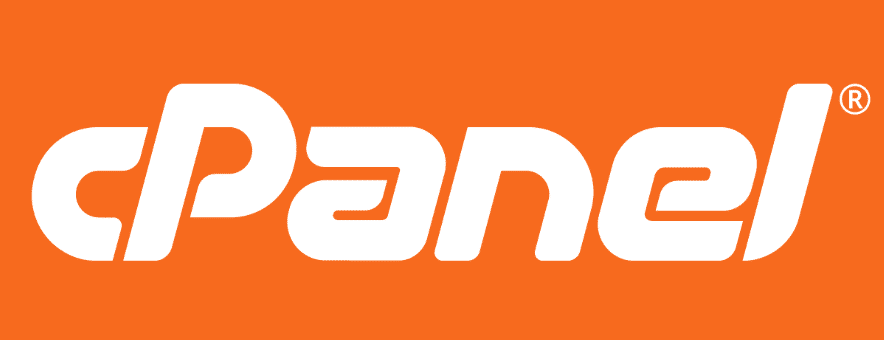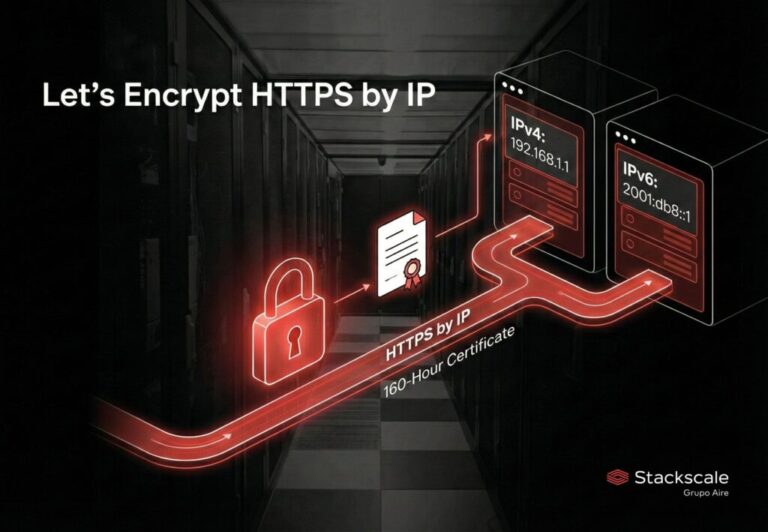Choosing the right web hosting control panel can significantly impact your site’s performance and ease of management. In the battle of cPanel vs. Plesk, both offer unique features and benefits tailored to different user needs.
This discussion explores the ins and outs of each platform, comparing their key functionalities, user interfaces, security measures, and pricing. Whether you’re a seasoned developer or a novice website owner, understanding these control panels will help you make a decision that best suits your needs.
Key Takeaways:
- cPanel and Plesk are two popular web hosting control panels, each with its own unique features and advantages.
- CPanel is known for its user-friendly interface and extensive support for third-party applications, while Plesk offers a more comprehensive set of features and customization options.
- The choice between cPanel and Plesk ultimately depends on your specific needs and preferences, as well as your budget and level of technical expertise.
What is a Web Hosting Control Panel?
A web hosting control panel is a software interface that enables users to manage their web hosting accounts efficiently, providing a user-friendly environment for essential tasks such as domain management, file management, and server settings configuration.
This critical tool simplifies the complex tasks associated with website management, making it accessible to individuals with limited technical expertise. By centralizing functionalities that are crucial for website operations, it enhances the overall user experience and facilitates seamless navigation between various features.
Moreover, the control panel plays a vital role in server administration tasks by automating processes that would typically necessitate expert intervention. The management tools integrated within these panels allow users to optimize web applications and enhance their online presence, ensuring effective resource utilization and minimizing potential downtime.
Key Features of Plesk
Plesk offers a comprehensive suite of features specifically designed to facilitate effective web hosting management, including FTP access, email management, built-in WordPress support, and advanced security measures to ensure data integrity.
These functionalities not only streamline workflows but also significantly enhance the overall user experience. FTP access enables seamless file transfers and efficient management of website files, which is essential for developers and site administrators. Additionally, the robust email management system streamlines the process of establishing and managing professional email accounts, equipping users with intuitive tools for effective communication.
The built-in WordPress support further simplifies the installation, management, and updating of WordPress sites, catering to the needs of millions of website owners. Furthermore, the advanced security measures, which include automated backups and SSL certificates, protect sensitive data, providing reassurance to both users and their clients.
Pros and Cons of Using Plesk
Like any control panel, Plesk presents its own set of advantages and disadvantages that potential users should carefully consider before making a decision, particularly concerning pricing structures and the level of technical support available.
Many users value the user-friendly interface that Plesk provides, which streamlines the management of web hosting environments. This intuitive design makes it accessible to individuals with varying levels of technical expertise.
However, some prospective users may perceive the pricing options as relatively high compared to other control panels, particularly for those who are just starting or operating within a constrained budget. Although technical support is generally regarded as reliable, there have been instances of delayed responses to user inquiries, which could be a disadvantage for those requiring immediate assistance during critical situations.
Ultimately, it is essential for prospective users to evaluate these factors meticulously to ascertain whether Plesk aligns with their specific needs and budget.
Key Features of cPanel
cPanel offers a comprehensive suite of features designed for efficient web hosting management, encompassing email management, database management, and a range of security measures to enhance the overall user experience.
The email management functionality enables users to create, configure, and manage multiple email accounts with ease, facilitating seamless communication with clients and customers. It also includes essential tools for spam filtering and automated responses, ensuring efficient email handling.
The database management feature provides a user-friendly interface for managing databases such as MySQL, allowing users to create, delete, or modify database attributes effortlessly. This capability ultimately contributes to improved site performance and operational efficiency.
Additionally, cPanel incorporates extensive security measures, including SSL certificate installation, password-protected directories, and IP blocklisting. These features give the power to users to protect their websites from unauthorized access and potential threats.
Collectively, these functionalities foster a well-organized, secure, and manageable web hosting environment.
Pros and Cons of Using cPanel
When evaluating cPanel, it is essential to consider its advantages and disadvantages, particularly regarding pricing options and the level of technical support provided, as these factors can significantly impact user experience.
Understanding these elements is crucial for users in search of reliable web hosting solutions. cPanel presents a tiered pricing structure that accommodates both beginners and advanced users, offering flexibility that can be tailored to individual needs. However, this pricing model may also pose challenges for small businesses or individuals with limited budgets.
While the technical support offered by cPanel is frequently commended for its responsiveness and expertise, some users have reported experiencing delays during peak periods or when seeking assistance outside of standard operating hours. Ultimately, the balance between cost and the effectiveness of support can significantly determine the overall satisfaction of a diverse range of users.
User Interface Comparison: Plesk vs cPanel
A comparison of the user interfaces of Plesk and cPanel reveals distinct differences in usability and interface design, which can significantly affect the overall user experience in web hosting management.
Plesk presents a more modern and visually appealing layout, which is particularly advantageous for users who favor a streamlined navigation experience. Its intuitive drag-and-drop functionality and mobile-friendly design are especially beneficial for those managing websites while on the move.
Conversely, cPanel offers a more traditional interface that may be perceived as comforting and easier to navigate by some users, particularly novices, due to its familiar icons and layout.
Grasping these nuances can assist users in selecting the control panel that best aligns with their technical expertise and individual preferences, ultimately enhancing their web hosting management experience.
Performance Analysis of Plesk and cPanel
Assessing the performance of Plesk and cPanel requires a thorough evaluation of their resource management capabilities and effectiveness in software installation, which are critical factors for ensuring reliable web hosting.
These control panels serve as a fundamental component for many web hosting services, significantly influencing the operational efficiency of websites under varying loads. Effective resource management is essential, as it ensures that server resources are allocated optimally, thereby minimizing downtime and enhancing overall speed. Concurrently, the software installation process is pivotal in determining the speed at which websites can be launched and maintained.
Both Plesk and cPanel offer distinct features that cater to diverse user needs, impacting various aspects such as script deployment and database management. Understanding these performance metrics is crucial, as they have a direct influence on user satisfaction and the overall success of hosted applications.
Security Measures in Plesk and cPanel
Both Plesk and cPanel implement a variety of security measures designed to safeguard users’ data, including the provision of SSL certificates and an array of essential security features that contribute to a secure hosting environment.
These platforms emphasize data integrity and confidentiality by offering robust SSL certificate management, which facilitates seamless encryption of data transmitted between users and servers. Additionally, they incorporate advanced firewalls and intrusion detection systems to mitigate potential cyber threats. Users benefit from automated backup protocols, ensuring that their information is securely stored and can be promptly restored in the event of an incident.
Moreover, regular updates and patches are standard practices that address vulnerabilities and enhance overall protection. These comprehensive security strategies significantly contribute to creating a reliable web hosting environment, instilling confidence in users who are focused on maintaining their online presence.
Backup and Restoration Options Available
Backup and restoration options represent critical components of both Plesk and cPanel, equipping users with essential tools to ensure data security and effectively recover lost information.
These features address a variety of user needs, ranging from individual website owners seeking assurance regarding data safety to larger enterprises requiring comprehensive data protection strategies. In Plesk, users have the capability to schedule automatic backups, facilitating regular snapshots of their website data and thereby minimizing the risk of data loss due to unforeseen circumstances.
Conversely, cPanel users benefit from a user-friendly interface that allows for manual backups and straightforward restoration processes, ensuring a swift return to a previous state should issues arise. The importance of these restoration capabilities cannot be overstated; an efficient recovery process enables users to mitigate downtime and maintain business continuity in the event of data disruptions.
WordPress Integration in Plesk vs cPanel
In the realm of WordPress integration, both Plesk and cPanel provide distinct support and tools specifically designed to enhance the management of web applications, addressing the particular needs of WordPress users.
These control panels offer a range of features, including one-click installations, automatic updates, and comprehensive security measures, all of which are vital for maintaining optimal site performance. Plesk is recognized for its modern interface and commitment to user-friendliness, making it a compelling option for individuals who prioritize ease of use. Conversely, cPanel stands out due to its robust ecosystem of plugins and extensive documentation, providing a wealth of resources for troubleshooting and customization.
The tailored tools and services offered by each platform enable users to effectively manage their WordPress sites, thereby enhancing overall productivity and ensuring peace of mind.
Pricing Comparison: Plesk vs cPanel
Pricing is a critical consideration for many users when selecting between Plesk and cPanel. Both platforms provide a range of pricing options that align with their respective features and capabilities, which are designed to meet the specific needs of users.
Pricing for cPanel
cPanel provides a range of competitive pricing options that vary according to the features included in each subscription plan. It is essential for users to select a plan that aligns with their specific needs and budget.
The basic plan generally includes fundamental features such as a user-friendly interface, basic security protocols, and standard backup options. For users seeking enhanced functionality, the intermediate plan incorporates additional features, including automated backups, advanced security measures, and the capability to manage multiple domains. The premium plan is designed for businesses that require extensive resources, offering advanced tools for analytics, priority support, and custom installation options.
By carefully evaluating the features in relation to their operational requirements, users can make informed decisions and choose the appropriate cPanel plan that will effectively support their web hosting needs.
Pricing for Plesk
Plesk offers a variety of pricing options tailored to different user demographics, highlighting the significance of selecting the appropriate subscription based on the features necessary for effective web hosting management.
Each plan is designed to meet diverse requirements—whether for individual developers in need of essential tools for website creation or for small businesses seeking robust functionality to manage multiple domains. The basic plan generally includes fundamental features such as an intuitive interface and essential security measures, making it suitable for beginners.
As users’ needs evolve, they can transition to more advanced plans that provide enhanced security features, automation tools, and increased resource capacities. This flexibility ensures that users can scale their hosting solutions in accordance with the growth of their online presence, thus serving as a valuable asset for those aiming to establish or expand their digital footprint.
FAQs
This section addresses frequently asked questions regarding Plesk and cPanel, with the objective of clarifying common concerns and enhancing the user experience when selecting a control panel for web hosting.
This guide will cover essential aspects that potential users often consider, including the unique features that differentiate each platform, their pricing structures, and the variations in user experience between the two.
Furthermore, we will examine performance metrics that may influence your decision in favor of one control panel over the other, ensuring that you acquire a comprehensive understanding of the offerings of each option. Whether you are a beginner seeking ease of use or an experienced developer in search of robust functionalities, this FAQ will provide the necessary insights to facilitate an informed choice.
Frequently Asked Questions
What are the main differences between cPanel and Plesk?
cPanel and Plesk are both popular web hosting control panels, but they have some key differences. cPanel is primarily used for managing websites on Linux servers, while Plesk is used for both Linux and Windows servers. cPanel has a more user-friendly interface and is known for its ease of use, while Plesk offers a wider range of features and is geared towards more advanced users.
Which control panel is easier to use for beginners?
cPanel is generally considered to be more user-friendly for beginners, with a simple and intuitive interface. It also offers a large number of tutorials and guides for new users. Plesk, on the other hand, may have a steeper learning curve for beginners, but it does offer more advanced features for experienced users.
What type of websites are best suited for cPanel?
cPanel is ideal for websites that run on Linux servers, such as WordPress, Joomla, or Drupal sites. It offers easy installation and management of these popular content management systems, making it a popular choice for website owners.
Can I switch from cPanel to Plesk or vice versa?
Yes, it is possible to switch between cPanel and Plesk, but it may require some manual work and configuration. If you are switching from cPanel to Plesk, you may need to transfer your website files and databases manually. However, some hosting providers may offer a migration service to make the process easier.
Which control panel offers better security features?
Both cPanel and Plesk offer strong security features, but Plesk may have a slight edge in this area. Plesk has a built-in firewall and regular security updates, as well as advanced security tools like Fail2Ban and ModSecurity. cPanel also has some security features, but they may require additional plugins or configurations.
Which control panel is more expensive, cPanel or Plesk?
The cost of cPanel and Plesk can vary depending on your hosting provider and the plan you choose. Generally, cPanel is considered to be more affordable, with a lower monthly or yearly cost. Plesk may be more expensive, but it often offers more advanced features and a wider range of tools for managing your website.






